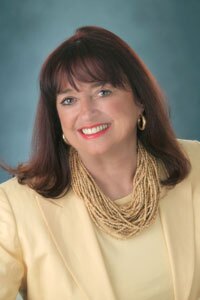INTERVIEW
Dr. Robin Fogarty, author of Ten Things New Teachers Need to Succeed, offers tips for new and prospective teachers.
Last month, former teacher and staff developer Dr. Robin Fogarty, who holds a doctorate in curriculum and human resource development from Loyola University of Chicago, published a second edition of her book Ten Things New Teachers Need to Succeed (Corwin Press). Hoping to ease the apprehension of beginners, Fogarty channeled the know-how she accumulated in her 17-year teaching career and wrote this short guide “as a way of previewing the skill involved in the act of teaching.” In an e-mail interview with Agent K-12, Fogarty, discussed her 10 tips, which include finding a teacher mentor, reaching out to parents, and having a love affair with assessments.

In your book, you say a new teacher’s number one priority is finding “a knowing colleague as counsel.” How can new teachers determine who would be a good mentor and how should they approach them?
Usually, as a new member of the staff, you intuitively connect with someone. They will be willing to take you under their wing. But, the message here is to be proactive and find someone who will be there for you.
You say classrooms should reflect a teacher’s education and training, philosophies, priorities, and passions. What are some things that teachers shouldn’t do as far as decorating or arranging their classrooms?
Some things that don’t make sense in terms of supporting learning are using lots of published materials to decorate; decorations should be supporting and celebrating the learning. Bulletin boards should speak to the units of study and celebrations should showcase the work of the students. Classroom space is best used with corners for working, clusters of desks or tables for collaborating, and countless materials and supplies for hands-on learning.
How can new teachers strike a balance between wanting to be liked and disciplining students?
Students respect teachers who set clear parameters for proper behavior, manners, and etiquette for their peer interactions. Not to worry, they will like you because they will respect your professional behavior. They already have their friends. You are not a peer, you are a proper authority figure and students want that in their teachers.
How can new teachers “cluster” standards into curriculum content?
To cluster the standards means, rather than addressing them in sequence, planning robust curriculum projects that integrate or layer math, language arts, science and social studies, as well as the arts and technology. Many standards can be addressed in authentic learning projects or performances, i.e. producing a school newspaper, putting on a school play, participating in a store or a post office simulation, or sponsoring a spaghetti dinner. These are the real learning experiences.
In Ten Things, you say developing teaching strategies is like making pot roast. How so?
You prepare a pot roast dinner and then you differentiate for the various tastes and talents. In teaching, you change content, process, or product depending on readiness, interests, and learning profiles.
You say that, in order to love assessments, teachers need to develop rubrics to evaluate student learning. What does this entail?
Developing rubrics helps teachers and students understand and delineate the indicators of quality that make a work stand out. In describing what makes a quality piece, everyone involved is in on the “secret” of what is expected and what exceeds expectations. In this way, assessments become more objective and less subjective.
You give some helpful tips for teachers who want to keep open communications with parents, but what should new teachers do when they face an angry or disagreeable parent?
Listen! Listen! Listen! And understand what the parent is trying to communicate. Then respond with dignity and professional grace. If necessary, suggest that the two parties may want to meet with the principal as soon as possible.
You imply that teachers need to be mentors, protégées, decision-makers, disciplinarians, intellectual architects, and friends to parents. What would you say to teachers who are worried that they won’t be able to fulfill these roles?
Teachers are inherently “people people.” They like people and they understand people. They naturally reach out to others. If they are by nature not prone to this kind of human interaction, intuitively, they would probably have chosen another profession. Of course, they can become more people-oriented over time and with explicit practice and protocols. But usually, teachers are already practiced at many of these roles. My experience has suggested this.
Any final words of advice?
Some final advice to teachers can be summed up in this poem by:
“Come to the edge,” he said.
They said, “We’re afraid.”
“Come to the edge,” he said.
They came.
He pushed them and they flew.
For more information about Robin Fogarty and her teacher resources, go to www.robinfogarty.com.
-Stacey Hollenbeck


